Filter by

Advances in Nanoparticles: Synthesis, Characterization, Theoretical Modelling…
The concept of synergistic effects has been widely applied in many scientific fields such as in biomedical science and material chemistry, and has further attracted interest in the fields of both synthesis and application of nanomaterials. In this paper, we report the synthesis of long-wavelength emitting silicon quantum dots based on a one-step hydrothermal route with catechol (CC) and sodi…
- Edition
- -
- ISBN/ISSN
- 9783039285822
- Collation
- 144
- Series Title
- -
- Call Number
- -

Advances in Musculoskeletal Modeling and their Application to Neurorehabilita…
Neuromusculoskeletal (NMS) modeling has the potential to serve as a valuable tool for informing the design of assistive devices or neurorehabilitation interventions. For these applications, an NMS model must be able to represent the relevant unique characteristics of the targeted subject, e.g., a person with a neurological disorder. Motion predictive simulations, by considering the task con…
- Edition
- -
- ISBN/ISSN
- 9782889662043
- Collation
- 144
- Series Title
- -
- Call Number
- -
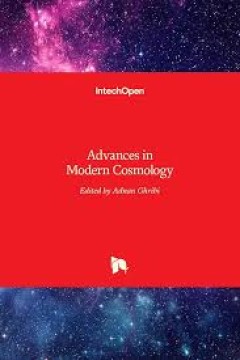
Advances in Modern Cosmology
To be human is to care how the physical world came, whether it has boundaries and what is to become of it. Cosmology is the science that tries to answer these eternal questions. During the twentieth century, it has been elevated from the rank of philosophy to precision science thanks to the advances in both theory and observation. General relativity, quantum mechanics and observational tech…
- Edition
- -
- ISBN/ISSN
- 9789533074238
- Collation
- 210
- Series Title
- -
- Call Number
- -
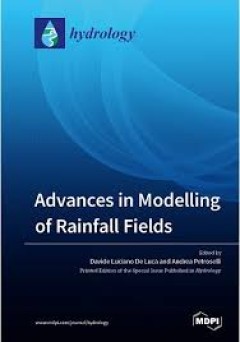
Advances in Modelling of Rainfall Fields
Precipitation is the most important variable in the climate system and the dominant driver of land surface hydrologic conditions. Rain gauge measurement provides precipitation estimates on the ground surface; however, these measurements are sparse, especially in the high-elevation areas of Nepal. Reanalysis datasets are the potential alternative for precipitation measurement, although it mu…
- Edition
- -
- ISBN/ISSN
- 9783036557472
- Collation
- 228
- Series Title
- -
- Call Number
- -
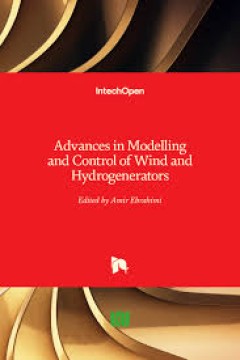
Advances in Modelling and Control of Wind and Hydrogenerators
Pressure and flowrate measurements were conducted for an air-cooled salient pole hydro model generator in order to validate a computational fluid dynamics (CFD) simulation approach. The ventilation system of the model generator was driven by adjustable external fans, which allows detailed pressure measurements for a range of operating conditions. The CFD model to be validated consists of fu…
- Edition
- -
- ISBN/ISSN
- 9781838805449
- Collation
- -
- Series Title
- -
- Call Number
- -
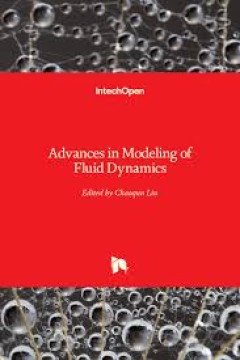
Advances in Modeling of Fluid Dynamics
Although fluid dynamics, a classical discipline, has been studied for many centuries, there are still many remaining questions yet to be answered, especially in turbulent flow. With significant advances in computational technology and decrease hardware costs, we have noticed a rapid evolution in CFD techniques and models
- Edition
- -
- ISBN/ISSN
- 9789535108344
- Collation
- 318
- Series Title
- -
- Call Number
- -
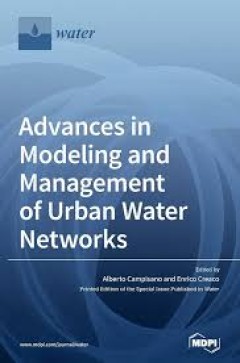
Advances in Modeling and Management of Urban Water Networks
This Editorial presents a representative collection of 15 papers, presented in the Special Issue on Advances in Modeling and Management of Urban Water Networks (UWNs), and frames them in the current research trends. The most analyzed systems in the Special Issue are the Water Distribution Systems (WDSs), with the following four topics explored: asset management, modelling of demand and hydr…
- Edition
- -
- ISBN/ISSN
- 9783039437894
- Collation
- 290
- Series Title
- -
- Call Number
- -

Advances in Micro and Nano Manufacturing: Process Modeling and Applications
Biocompatible polymers are used for many different purposes (catheters, artificial heart components, dentistry products, etc.). An important field for biocompatible polymers is the production of vision implants known as intraocular lenses or custom-shape contact lenses
- Edition
- -
- ISBN/ISSN
- 9783036532714
- Collation
- -
- Series Title
- -
- Call Number
- -

Advances in Machine Learning and Mathematical Modeling for Optimization Problems
The Internet of Things (IoT) encompasses a wide range of applications and service domains, from smart cities, autonomous vehicles, surveillance, medical devices, to crop control. Virtualization in wireless sensor networks (WSNs) is widely regarded as the most revolutionary technological technique used in these areas
- Edition
- -
- ISBN/ISSN
- 9783036577401
- Collation
- 280
- Series Title
- -
- Call Number
- -

A Game of Hare & Hounds : An Operational-Level Command Study of the Guilford …
How did a narrow tactical victory for the British at Guilford Courthouse, North Carolina, during the American Revolutionary War lead to the failure of the British Southern Campaign? This volume offers an indispensable point of departure for a staff ride to the battlefield at Guilford Courthouse, providing a systematic analysis of this key battle in the American Revolution. Author Harold Allen S…
- Edition
- -
- ISBN/ISSN
- 9781737040408
- Collation
- 184 hlm
- Series Title
- -
- Call Number
- -
 Computer Science, Information & General Works
Computer Science, Information & General Works  Philosophy & Psychology
Philosophy & Psychology  Religion
Religion  Social Sciences
Social Sciences  Language
Language  Pure Science
Pure Science  Applied Sciences
Applied Sciences  Art & Recreation
Art & Recreation  Literature
Literature  History & Geography
History & Geography